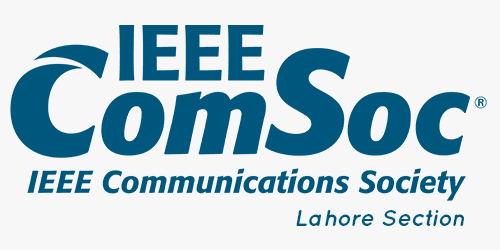[masterslider id=”4″]
The 2020 IEEE 23rd International Multitopic Conference (INMIC) will take place in Bahawalpur, Pakistan, 5-7 November 2020. The INMIC is the flagship annual conference of IEEE in Pakistan. The focus of the INMIC is on multidisciplinary topics in the field of electrical & electronics engineering, computer systems engineering, and computer science. The aim of INMIC2020 is to provide a friendly and supportive environment for rich scientific exchange of ideas between researchers and industry practitioners. It also presents an excellent opportunity to graduate students and PhD scholars to familiarize themselves with the state of art research in various computing disciplines. The conference program will feature oral and poster presentations, and plenary sessions. Special attention will be devoted to student contributions in INMIC 2020. Regular student papers, for which the first author is a student, will be considered for the best student paper award.
Topics of interest to INMIC 2020 include, but are not limited to:
Electrical Engineering : Power Generation Systems, Electrical Machines and Adjustable Speed Drives, AC and DC Machines and Drives, Applications of Power Electronics, High Voltage Engineering and Insulation Technology, VLSI and MEMS Design, Electric and Hybrid Vehicles, Energy Storage and Fuel Cells, Energy Conversion, Semiconductor Materials and Devices, Energy Transmission and Distribution, Hybrid Power Systems, Power System Stability and Protection, Power System Analysis and Optimization, Renewable Energy, Smart Grids, Modeling and Simulation of Power Systems, Power System Management Technologies, Renewable Energy Systems, Technology & Management
Electronic Engineering: Electronic System Design, Embedded Systems, Instrumentation, Nanotechnology, NEMS and MEMS, Optoelectronics and Photonics, Power Electronics, Robotics and Control Engineering, Semiconductor Materials and Devices
Communication Systems and Security: Antennas and Propagation, Cognitive Radio and Networks, Cross-layer Design, Modeling and Optimization, Detection and Channel Estimation, Information Theory and Channel Capacity, Massive MIMO Communication Systems, Mobile and Wireless Networks. Next Generation Mobile Communications, Optical Communications and Photonics, Satellite and Wireless Communications, Space-time Coding and Processing, Threats and Vulnerabilities, Computer Forensics, Cloud Security, Cryptography, Biometric Security
Computing and Intelligent Systems: Machine Learning and Data Mining, Deep learning, Social Impact of Artificial intelligence, Big Data, Fuzzy Logic and Neural Networks, Computer Vision, Decision Support Systems, Virtual Reality, Evolutionary Computations, Graph Theory, Swarm Intelligence, Metaheuristic, Natural Language Processing, Integration of AI with other Technologies
Digital Signal Processing: Adaptive Signal Processing, Blind Signal Processing and Optimization, Speech, Image and Video Processing, Signal Processing for Storage, Optical Signal Processing
Network and Distributed Systems: Ad Hoc and Sensor Networks, Distributed Algorithms and distributed Compatibility, Future Internet and Networks, Internet of Things, Pervasive and Ubiquitous Computing, Scalable Distributed Systems, Software Defined Networks, Real-Time Systems, Distributed System Modeling, Simulations, Network Testing and Deployments, Cloud and Grid Computing, Mobile Edge Computing, Networks and Security, High Performance Networks and Protocols
Biomedical Engineering: Biosensor’s, Biomedical signal Processing, Telemedicine, Biomedical Imaging and Image Processing, Computational biology and bioinformatics, Health informatics, Biomechanics, Wearable & Implantable Technologies, Biomedical Engineering in Education, Industry & Society
Latest News
- Conference will be held Virtualy
- Organizing committee and advisory committee is online.
- The first call for papers is online.
- The submission and registration system is open.
Organizing Committee:
Keynote Speakers:
Keynote Speakers:
Program Committee:
Publication Chair:
Publicity Chair:
Sponsored by:

Organized By:



